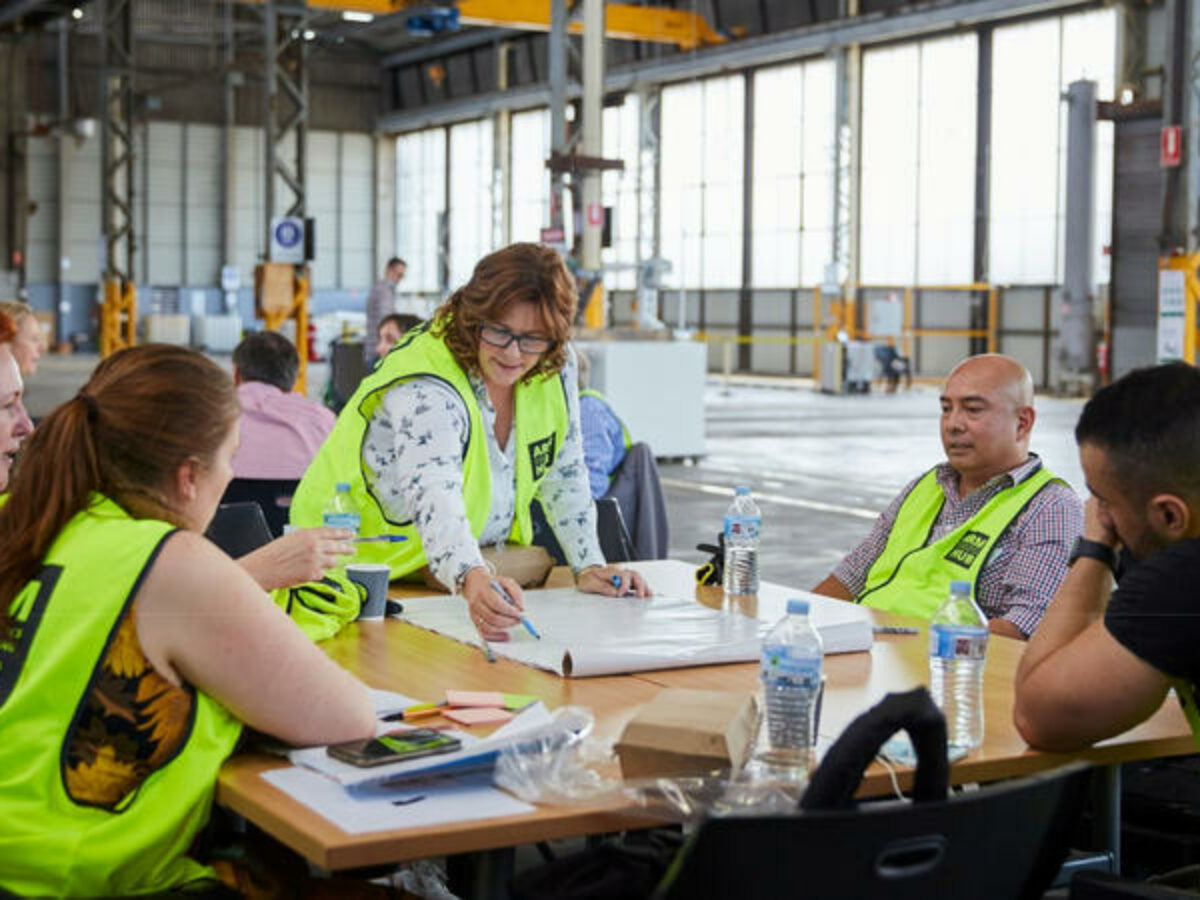Utilising AI and robotics to cut textile waste

Queensland's ARM Hub is leading a partnership focused on developing a plan to assist the sorting of waste textiles using artificial intelligent systems and robotic equipment.
Textile waste is a major cause of landfill in Australia with up to 679,000 tons of waste released each year .
With accumulating waste, and a keen focus on meeting national priorities, ARM Hub is working with key stakeholders across the textile supply chain to identify innovative solutions to divert large volumes of unsaleable textile donations away from landfill.
Through partnership with The Salvation Army, Kmart and QUT, ARM Hub developed and delivered a series of half day workshops where representatives from each organisation, along with industry experts across the garment supply chain, came together to conceptualise potential solutions.
The workshop’s objective was to engage with industry, research organisations and government bodies to find an economically viable way to sort and disaggregate clothing – one of the major barriers to reducing the amount of textile waste in landfill.
Automating parts of the sorting and reprocessing stage, will allow for charitable recyclers to minimise the time and energy needed during the recycling process. With people and robots working collaboratively, a solution can be found that contributes to a circular economy.
Kmart Australia's John Gualtieri said: “Through our research it is clear that the volumes of textile donations to charities like The Salvation Army have risen and the time-consuming and labour-intensive process of hand-sorting donations cannot keep pace.
“This is unsustainable and we need to find smarter ways of working that also allow textile waste to be further value-added and kept out of landfill.
“Like the team at QUT, The Salvation Army and ARM Hub, we believe one solution to this might be technology that can efficiently sort and process clothing waste.”
The first workshop took place in the ARM Hub Learning Factory in Northgate, Brisbane.
Attendees worked together pulling apart a standard one cubic metre bale of donated textiles to understand what makes up a typical bale to identify current challenges and opportunities that can be addressed in sorting.
Waste is produced at each stage of the supply chain – raw materials come in and are spun, woven or knitted into cloth, stitched into garments, and then sold by retailers to consumers.
According to ARM Hub, to offset the volume of waste, industry leaders need to take a proactive approach through being drivers of change, such as product stewardship agenda and retailers’ targets around circularity.
The workshops helped identify a stakeholder informed plan to develop a demonstrator for automated sorting and disaggregation.
If the project is undertaken, the demonstrator will leverage existing technology and develop novel technology applications to address the identified needs.
The ARM Hub is a technology centre in robotics, artificial intelligence and design-led manufacturing. We accelerate industry’s digital transformation.
Picture: ARM Hub
Subscribe to our free @AuManufacturing newsletter here.
Topics Manufacturing News
@aumanufacturing Sections
Analysis and Commentary Awards casino reviews Defence Gambling Manufacturing News Online Casino Podcast Technology Videos





